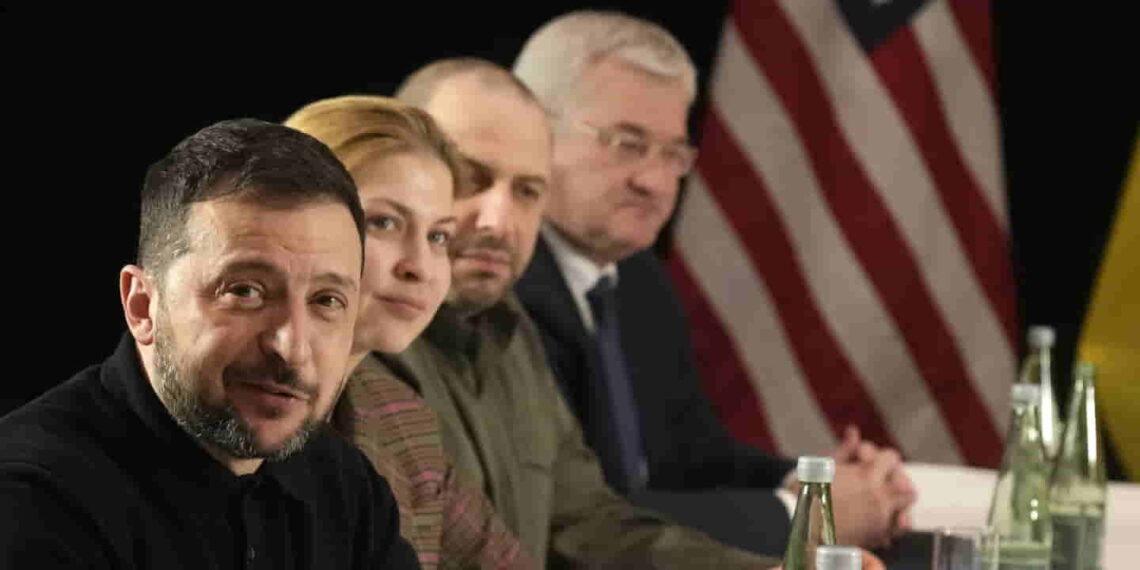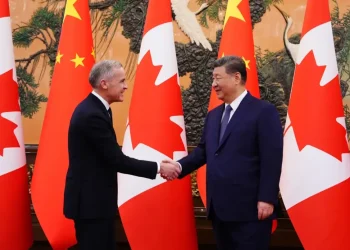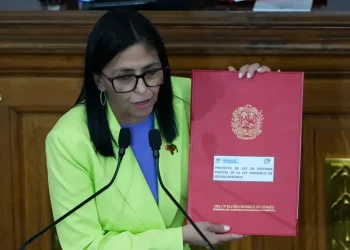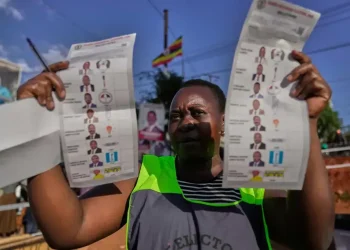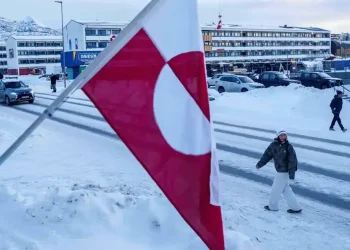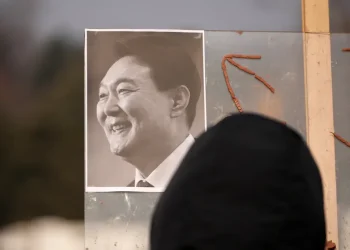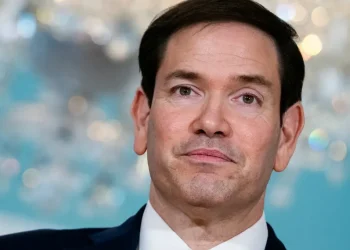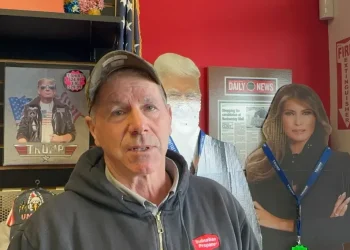Zelenskyy Calls for a European Army as EU Leaders Clash with the U.S. Over Ukraine
Key Highlights:
- Zelenskyy Advocates for a United European Army to reduce reliance on the U.S.
- Germany Pushes Back Against U.S. Political Interference in its upcoming elections.
- Trump’s New Ukraine Policy Sparks Trans-Atlantic Tensions, sidelining European leaders from peace talks.
- EU Leaders Struggle to Understand the U.S. Stance on Ukraine and democracy.
Zelenskyy Pushes for a European Army Amid U.S. Policy Shifts
Ukrainian President Volodymyr Zelenskyy has called for the creation of an “armed forces of Europe“ as doubts grow over the United States’ long-term support for European security. Speaking at the Munich Security Conference, Zelenskyy emphasized that Ukraine’s fight against Russia’s full-scale invasion has proven the need for a unified European military force.
“I really believe that the time has come. The armed forces of Europe must be created.” – Zelenskyy
His comments come as the Biden administration struggles to maintain previous levels of U.S. military and economic support for Ukraine.
However, it’s unclear whether European leaders will rally behind this idea, given existing political and economic challenges in the EU. Some leaders remain hesitant due to national debt concerns and internal disagreements on defense spending.
U.S.-EU Relations Strained as Trump Alters Ukraine Strategy
Tensions between Europe and the United States have deepened significantly following former President Donald Trump’s direct engagement with Russian President Vladimir Putin. Trump’s administration appears to be shifting toward bilateral peace talks with Russia, excluding European nations from negotiations.
U.S. Special Envoy Signals Europe May Be Left Out
Gen. Keith Kellogg, Trump’s special envoy for Ukraine and Russia, suggested that only the U.S., Ukraine, and Russia would be included in future peace discussions.
“You can have the Ukrainians, the Russians, and clearly the Americans at the table talking.” – Kellogg
When pressed on whether European nations would be included, he responded, “I think that’s not going to happen.”
This stance has alarmed EU officials, with German Foreign Minister Annalena Baerbock calling it a “moment of truth” for Europe.
“This is an existential moment. Europe must stand up. There will be no lasting peace unless it is a European-agreed peace.” – Baerbock
Meanwhile, Icelandic Prime Minister Kristrún Frostadóttir expressed frustration with the lack of clarity from Washington, saying Europe is still unsure about U.S. intentions.
?? German Chancellor Condemns U.S. Interference in Elections
Adding to the tensions, German Chancellor Olaf Scholz criticized the U.S. for what he called political interference in Germany’s upcoming elections.
The backlash follows U.S. Vice President JD Vance’s controversial comments at the Munich conference, where he criticized Europe’s approach to democracy and free speech. Vance also met with the leader of Germany’s far-right party (AfD), currently polling second ahead of Scholz’s Social Democrats before the February 23 election.
Scholz condemned Vance’s actions, linking them to Germany’s history and commitment to democracy:
“We will not accept that outsiders interfere in our democracy or elections.” – Scholz
This strong statement underscores growing trans-Atlantic tensions, with European leaders increasingly viewing U.S. policy shifts as unpredictable and disruptive.
What’s Next?
- Will Europe take Zelenskyy’s call for a unified army seriously?
- How will the EU respond to being excluded from U.S.-Russia talks on Ukraine?
- Will Germany push back further against U.S. involvement in its elections?
The coming weeks will be critical for Europe’s strategic direction, particularly as Trump continues reshaping U.S. foreign policy.
Stay tuned for further updates on the evolving geopolitical landscape.
This article was rewritten by JournosNews.com based on verified reporting from trusted sources. The content has been independently reviewed, fact-checked, and edited for accuracy, neutrality, tone, and global readability in accordance with Google News and AdSense standards.
All opinions, quotes, or statements from contributors, experts, or sourced organizations do not necessarily reflect the views of JournosNews.com. JournosNews.com maintains full editorial independence from any external funders, sponsors, or organizations.
Stay informed with JournosNews.com — your trusted source for verified global reporting and in-depth analysis. Follow us on Google News, BlueSky, and X for real-time updates.
